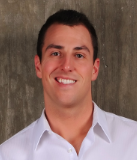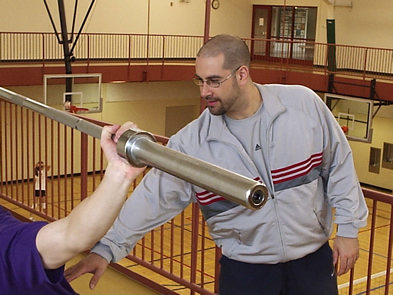Athlete monitoring has risen to the forefront of the physical preparation industry over the last several years. Monitoring and readiness is part of a continued evolution in a field that is never static. Athlete monitoring is a way in which sport scientists and coaches are using information gathered from the athlete to gauge how physiologically, psychologically, and emotionally ready their athletes are for training and competition.
Sport scientists and coaches are relying more and more heavily on both objective and subjective measures to help adjust and determine training protocol for both athletes and clients. There has been a steep rise in the implementation of monitoring technology in physical preparation from the professional all the way to the high school level. GPS units, heart rate variability monitors, velocity based measurement, and multiple phone apps have become an integral part of physical preparation programs across the United States. We are going to take a look at monitoring in three distinct parts:
- Why we monitor and considerations for monitoring
- How we monitor at the high school level
- What difference can monitoring make in the development of your athletes?

Part 1 of this blog is going to focus on why we monitor and considerations for monitoring. The “why” is the most
critical component of any method that you may choose to implement in your program. If there is not a clear understanding of why something is being implemented into your program, then I would advise you to immediately pause and determine what that “why” is for you.
I am going to be giving a high school perspective as to why we believe that monitoring has become extremely important with our athletes. The “why” for why we began to monitor became very clear for us before we began to implement any monitoring strategies at Battle Ground Academy.
The demands on today’s high school athlete are tremendous. Many of these athletes are participating in rigorous academic programs, highly competitive high school and club athletic programs, as well as consistent physical preparation training. It has been my observation that this athlete’s readiness levels are some of the most variable a coach will experience. These athletes rarely experience true off-seasons due to multiple sport participation, private skills training, and club participation. This leaves this athlete under a tremendous amount of stress on a routine basis, and it puts the physical preparation professional into the role of a stress manager.
My concern for my athletes ultimately came from growing to understand the intense physiological, psychological, and emotional demands that not only came from their sports, but the chronological and developmental age of the athlete. An athlete’s high school years can be some of the most stressful and challenging of their lives. Once again, they are experiencing rapid changes physically, mentally, and emotionally that can make the demands placed on them through athletics participation a daunting task. Expectations, realistic or unrealistic, have also become a major stressor for these athletes. Our society has set the bar high in term of expectations both academically and athletically during these formative years.
Through the data tracking of our athletes, we would see a great amount of variability in the strength levels on a regular basis. All of our long term trends would be very solid, but we could see that at times there could be as much as a 17% fluctuation either positive or negative in a core lift from one week to the next in what we measured from an athlete!

This was not the standard fluctuation of course, but it was not unusual to see significant weekly fluctuations in strength levels. Looking at this data ignited the “light bulb” moment for me. Most of us who have been in the profession for a while most likely came out of programs with a strict percentage based mentality that did not really take the daily readiness of the athlete into account. We programmed volume and intensity into the program, and hopefully it lined up with where our athletes were that day.
Throughout this process the “why” for us became this: we want to meet our athletes as close to where they are as possible from a readiness standpoint on a daily basis. We want to do what is best for our athletes, and also what will help them achieve their goals in the safest and most efficient manner possible. I typically find that this is the goal of any coach who wants to implement a monitoring program with his or her athletes. The next step was to discern how we were going to implement a monitoring program that can be executed in an efficient manner. We first needed to consider what some challenges or limiting factors may be at the high school/youth level.
The most obvious challenges for most are going to be financial cost, time expenditure, and athlete compliance. All of these can be difficult because they are outside of your control for the most part. Finances are usually set at a certain point by a multitude of different factors dependent upon the situation. Time can be limited by access in an educational and private setting for different reasons as well. Finances and time are usually very scarce commodities in the world of physical preparation, and it must be taken into account to understand what type of monitoring program is right for your situation. Athlete compliance is the third area that is very important. Monitoring and measurement can be useless if the athlete’s in non-compliant. Non-compliance can be a lack of reporting or dishonest reporting by your athletes. There has to be athlete buy in to make all of this work!
Another factor to consider is making sure that data collection is in line with the amount of data that you can manage successfully. Collecting data for the sake of storing data in your computer is a futile exercise at best. There needs to be a plan in place to both collect and use the data.
It is important to implement any change in your program in stages, and implementing a monitoring program is no different.
It is important to implement any change in your program in stages.
It will be an adjustment for strength coaches, sport coaches, and athletes.
It is important not to place excessive demands on all involved in the early stages of building your monitoring program.
It is also important to help your athletes correctly understand the information you are asking for as well as explain the relevance of the information being collected.
It is vital that you repeat this process with everyone who is going to be involved in the process to ensure its success. This includes sport coaches, administrators, as well as parents.
Part two of this three-part series will look at methods from technology to programming that can be implemented at the high school level to monitor, evaluate, and adjust to help your athletes achieve optimal results.
Check out our Youth Athlete Assessment Certification to begin evaluating and monitoring your athletes.
About the Author: Fred Eaves
Ed.S, M.Ed, CSCS, RSCC, IYCA, USAW, USATF, BIOFORCE Conditioning Coach Certified, 2015 NSCA H.S. Strength Coach of the Year, 2013 Samson Equipment & AFM H.S. Strength Coach of The Year
 Julie is the Executive Director of the International Youth Conditioning Association (IYCA). She grew up as an athlete and played collegiate softball at Juniata College. She currently owns and operates her own youth fitness business pouring into young athletes. Her areas of expertise are youth sport performance, youth fitness business and softball training/instruction. Julie grew up on a dairy farm and can challenge the best of the best in a cow-milking contest. 😉
Julie is the Executive Director of the International Youth Conditioning Association (IYCA). She grew up as an athlete and played collegiate softball at Juniata College. She currently owns and operates her own youth fitness business pouring into young athletes. Her areas of expertise are youth sport performance, youth fitness business and softball training/instruction. Julie grew up on a dairy farm and can challenge the best of the best in a cow-milking contest. 😉










